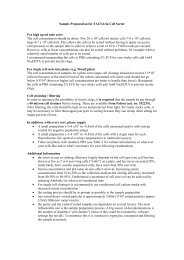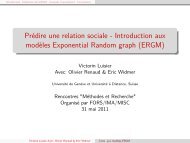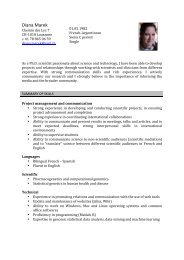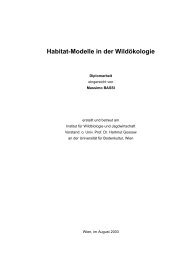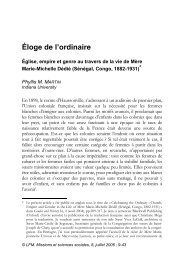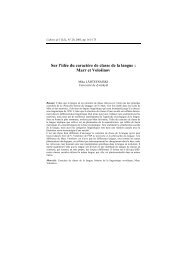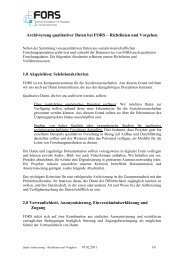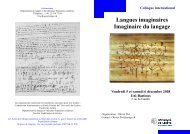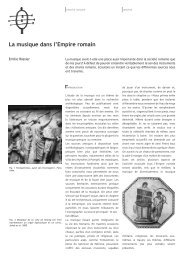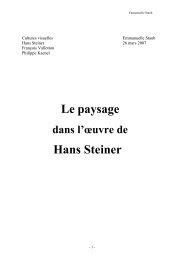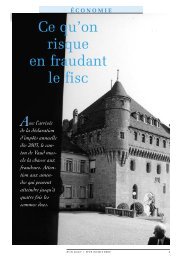conference programme book - European Survey Research ...
conference programme book - European Survey Research ...
conference programme book - European Survey Research ...
You also want an ePaper? Increase the reach of your titles
YUMPU automatically turns print PDFs into web optimized ePapers that Google loves.
TUESDAY 19 JULY 51and between groups of countries. The paper crically examines the quality of specific survey items of theproject’s quesonnaire measuring anomie and self-esteem. These items are idenfied with important sourcesof measurement errors associated with the formulaon of the quesons and the response scales applied. Itis advocated that the baery form of agree/disagree negave and affirmave statements yields response biasassociated with acquiescence issues and cognive procedures, thus eliminates the quality, i.e., the reliabilityand validity of the measures under study...1.26.2 Fague in Payment Diaries – Empirical Evidence from GermanyT. Schmidt 11 Deutsche Bundesbank, GermanyIn this paper we analyze whether the recording behaviour of consumers keeping a payment diary changesover the diary period. Using data from a large study on the payment behaviour of German consumers wefind that individuals tend to report a higher number of transacons on the first day of the diary period than onsubsequent days. Contrary to exisng literature we also find that the number of small cash payments recordeddoes not decrease during the one-week diary period. Our findings indicate that shorter diaries may be enoughto reflect adequately the payment behaviour of all consumers. However, longer diaries also have their merits,especially when it comes to analysing subgroups of payment types or rare events.1.26.3 Follow-Ups and Data Quality in Mail <strong>Survey</strong>s on Sensive TopicsA. Skarbek-Kozietulska 1 , P. Preisendörfer 1 , F. Wolter 11 Department of Sociology, Johannes Gutenberg-University Mainz, GermanySince Dillman’s (1978) Total Design Method (TDM) it is a well-known fact that follow-ups increase the responserates in mail surveys. But do they increase also the quality of survey data? The most suitable way to answer thisqueson is conducng a validaon study. A mail survey which allows such a validaon has been successfullyrealized at the University of Mainz in Germany. The study is part of a broader research project ”Asking SensiveQuesons”, supported by the German Science Foundaon (DFG).1.26.4 Opmal Appropriateness Measurement in the context of the <strong>European</strong> Social <strong>Survey</strong>I. Lamprianou 11 University of Cyprus, CyprusOpmal Appropriateness Measurement (OAM) is a general stascal method for the idenficaon of personswhose aggregated responses on a scale, survey quesonnaire or examinaon test might not be a valid indicatorof their true latent atude, trait or ability (Drasgow, Levine, and Zickar, 1996; Levine and Drasgow, 1988). Ithas long been known that some people may aempt to give socially desirable responses to some quesons,may answer randomly some quesons or may even copy their responses from another person. Idenfyingthese persons is meaningful because their responses may distort our results and because it is interesng toidenfy sub-groups which are more likely to give unreliable responses to surveys1.27 The Civil Society Index as a tool for cross-naonal comparisons. Methodologicalissues and substanve applicaonsTo be held on July 19, 2011 from: 16:00 to 17:30, in room 340.Coordinated by:• Michael Hoelscher - University of Heidelberg, Germany• Helmut Anheier - University of Heidelberg, Germany



